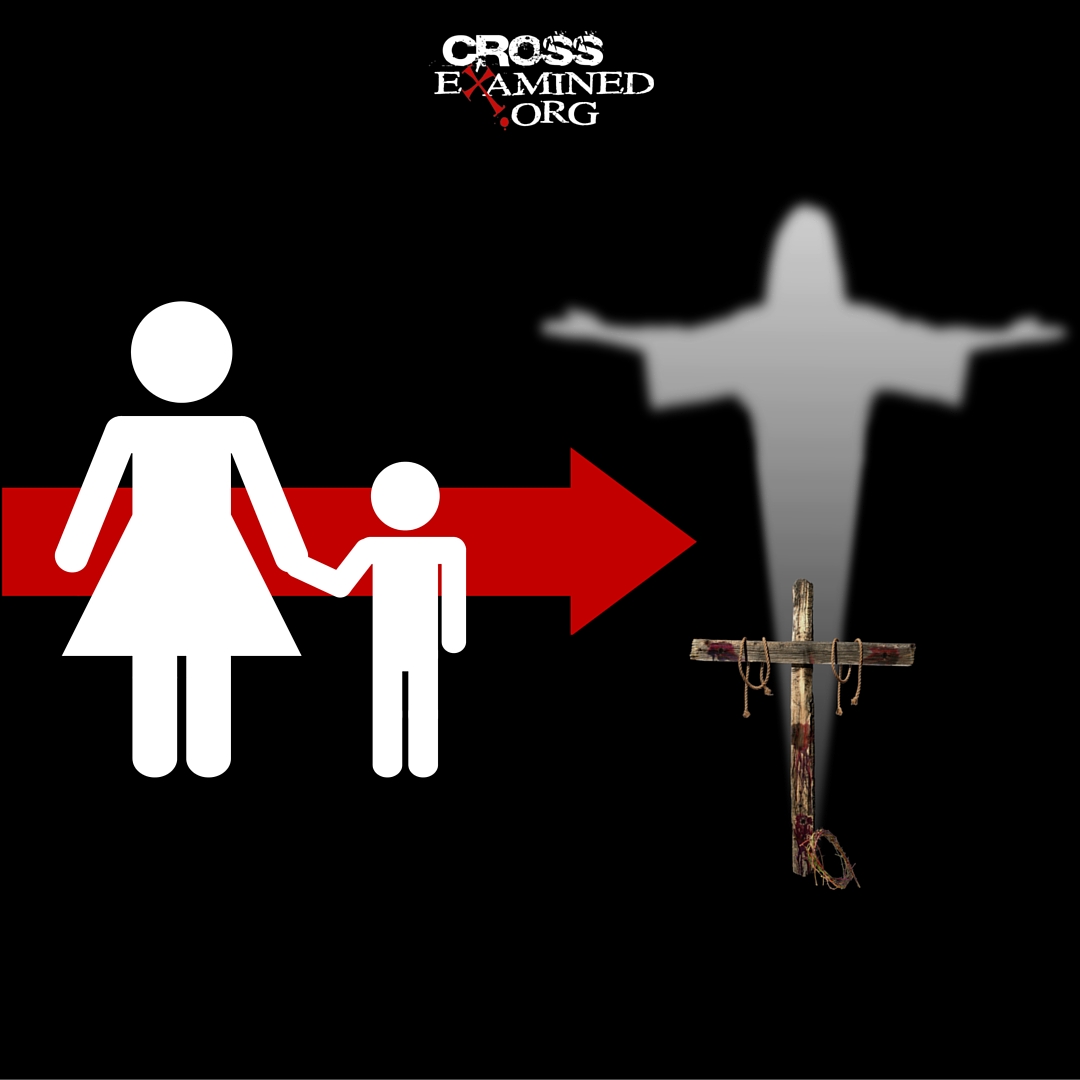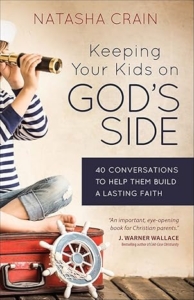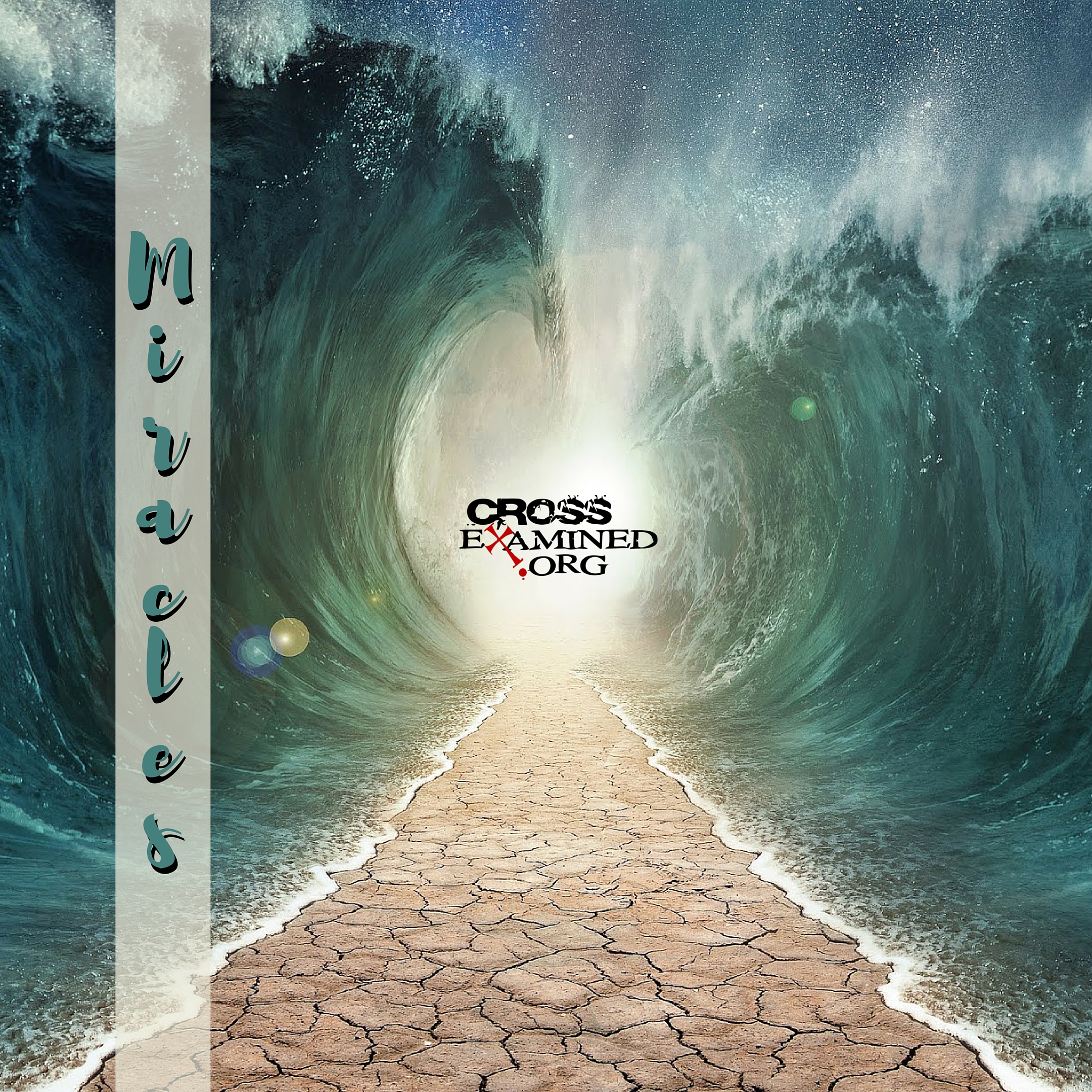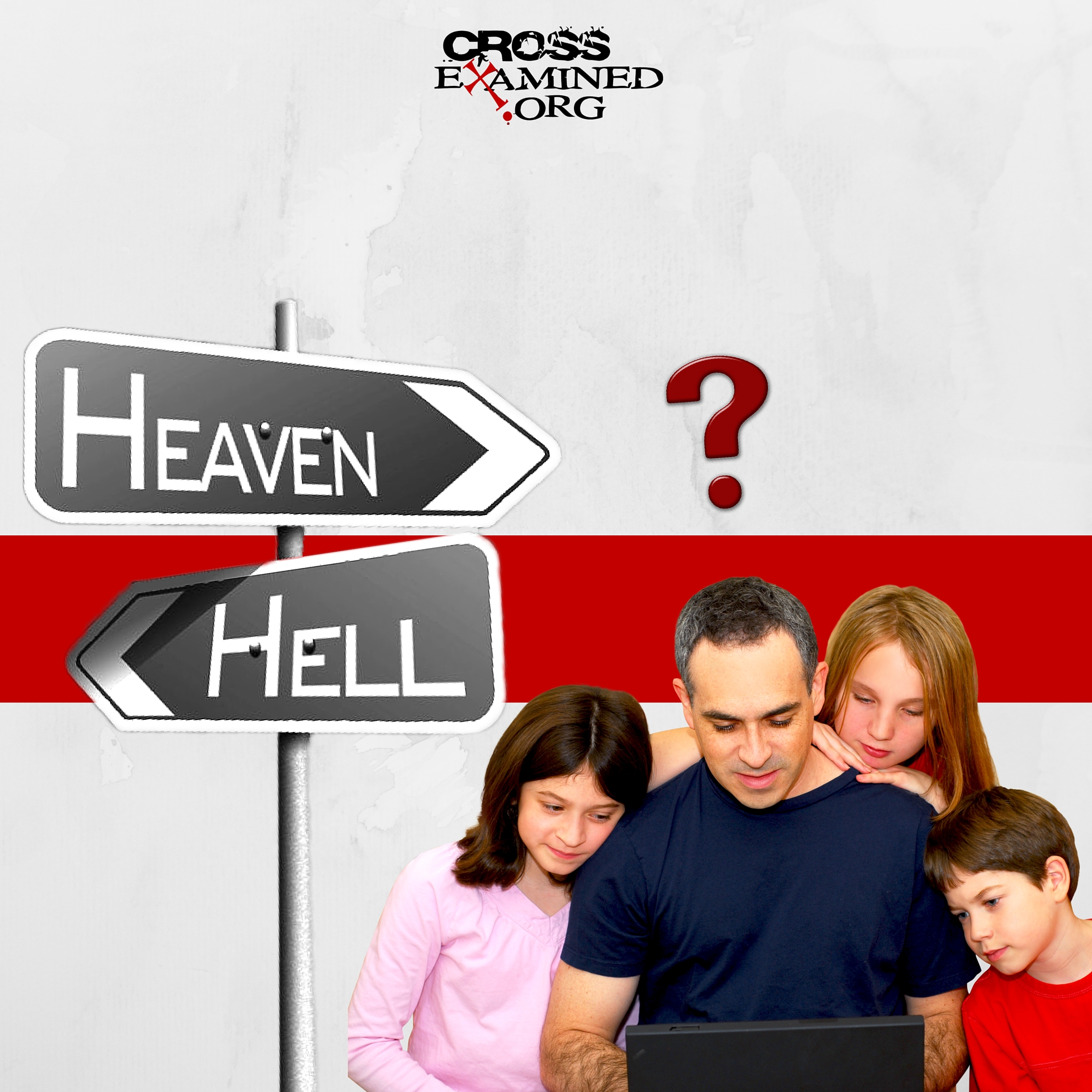By Natasha Crain
It’s now officially summer!
For many families, that means a (slightly) less hectic schedule for a few glorious weeks. At the same time, it can mean small-scale panic at what to actually do with the extra time your kids have.
Solution: Take the opportunity to get more creative with engaging together spiritually as a family. Here are 30 ideas to get you started!
- Choose a gospel to read as a family (Matthew, Mark, Luke or John). Decide on a timeframe (days or weeks) and divide the chapters accordingly.
- Pick two chapters per week from my book to discuss as a family. You probably have about 10 weeks of summer vacation. That means you can cover about half of the 40 critical conversations from Keeping Your Kids on God’s Side in that time! It’s a perfect opportunity before another hectic school year.
- Watch the “What’s in the Bible?” DVD series together. This 13-DVD series takes kids all the way the way through the Bible. It’s perfect for kids who need entertainment combined with their learning in order to pay attention. My 7-year-old son, for example, thinks it’s hilarious AND learns from it. However, kids who learn better from a more A-to-B approach will likely find it too chaotic. My 7-year-old daughter (my son’s twin) hates it because she has “no idea what’s going on.” I end up pausing it every 5-10 minutes (in a 25-minute episode) to explain. Nonetheless, it’s meaty WHILE being crazy, so it’s a great option for kids with certain personalities and learning styles.
- Schedule a “questions night”—a time for your family to get together and discuss any questions your kids have about God. Here’s how we do that in our family. Don’t just do it once! Do it throughout the summer, and hopefully beyond.
- Have your kids interview a nonbeliever. This could be a family member or friend. Help them come up with some questions, then discuss the responses later.
- Choose a news story with a faith angle to talk about. The sky’s the limit here. The Christian Post has a ton of material to consider.
- Find a way to serve others together as a family. Then discuss what the Bible says about serving others, so your kids have a meaningful understanding of how their beliefs tie to their actions.
- Attend Vacation Bible School. VBS is a fun week offered by many churches for kids to play and learn together. And you don’t have to just go to the one offered by your church–attend one at another church and get to know more people!
- Pick a relevant single word to focus on and discuss. Some good words for discussion from my book are faith (chapter 8), objective truth (chapter 9), justness (chapter 3), miracle (chapter 24), and evolution (chapter 37).
- Invite your pastor over for dinner. Depending on the size of your church, your kids may never have actually interacted with your pastor. Invite him to dinner and give your kids the opportunity to ask questions they may not want to ask you (or that you may not know how to answer)!
- Read or watch a debate between a Christian and a nonbeliever. Debates make for great discussion opportunities with older kids. Here’s a debate on the existence of God you can use, and here’s one on the reliability of the Bible.
- Do an internet research project together. Pick a faith-based subject to Google with your kids (e.g., “Did Jesus exist?”). Look at several of the articles from different viewpoints together. Talk about how to evaluate all the conflicting ideas you see online.
- Watch a science DVD series from a Christian perspective. This collection is great: The Intelligent Design Collection – Darwin’s Dilemma, The Privileged Planet, Unlocking the Mystery of Life.
- Learn about Christian persecution worldwide. In many countries, Christians are being persecuted. Open Doors USA is one organization that works on raising awareness of this. Use their site to help your kids gain more perspective on what the cost of following Jesus can be (and talk about how you can help).
- Encourage your kids to invite a friend to church. Have a conversation with your kids beforehand to help them fully understand why sharing our faith is important.
- Get The Belief Book by David McAfee and discuss. This is an atheist book written directly to kids which explains that religious beliefs are just holdovers from ancient people who didn’t know how to explain the world. It’s filled with inaccurate caricatures of faith and would be an excellent discussion tool for older kids.
- Introduce logic games. Critical thinking is so important in faith development today! Here’s a game we do regularly in our family that can help even the youngest kids think better.
- Visit a different church (another denomination or religion). Then discuss the difference in beliefs and practices versus your own…and why they differ.
- Break down the meaning of a worship song. If you ever stop to pay attention to the words in the songs we AND our kids sing at church, you’ll note that the meaning isn’t always obvious. Kids can learn a lot from discussing the songs they’re used to singing and it makes the songs more meaningful at the same time. (As an example, think of the song, “Open the Eyes of My Heart Lord, I Want to See You,” and how not obvious that meaning is to a child.)
- Get a new Bible game to play as a family. Search for “Bible games” on Amazon and you’ll find many options.
- Take a family spiritual inventory and act on it accordingly. Have each family member write down what they feel is good about your family’s spiritual life and what could use improvement. Get everyone thinking by identifying categories like prayer, Bible study, church attendance, service, and conversations. Take action on areas for improvement!
- Write letters to God. Have each family member take 10 minutes to write a letter to God. Pick a topic that is relevant at a given time for your family–it could be something light-hearted like complaints you’d like to “file” or something more serious like expressing disappointment about unanswered prayer. Share your letters.
- Print an internet meme to discuss. Google “religion memes,” click on the search results for images, and you’ll see all kinds of discussion-worthy topics.
- Do a Bible timeline activity. In my opinion, one of the greatest problems with biblical literacy today is understanding how the whole Bible fits together as one story of salvation history. When kids grow up without that understanding (as I did), the Bible is just a jigsaw of unconnected stories with questionable relevance. If you search on Amazon for “Bible timelines for kids,” you’ll see many activity options for kids of different ages. Pick one and work through it this summer.
- Go to a Christian bookstore together and pick out a devotional. It doesn’t have to be January 1 to start a devotional habit. Take your kids to a Christian store and select a devotional book to start.
- Pick a magazine and hunt for examples of the secular worldview throughout the articles. For example, with a teen girl, you could pick a popular teen beauty magazine. Get two copies—one for you, one for her. Have each of you go through and circle examples that are in conflict with a Christian worldview. Compare and discuss.
- Play “What would you say if…”. Certain personality types love intellectual challenges. My daughter, for example, loves open-ended questions that she can try to answer in the best way possible. If you have a child like that, you can facilitate conversations in a game format by asking “What would you say if…” Here are a few examples: What would you say if your friend’s mom said God doesn’t exist? What would you say if someone told you the Bible is 2,000 years old, so it’s not relevant for our lives today? What would you say if someone told you Christians are hypocrites so they never want to be a Christian? What would you say if someone told you they believe in science, not God?
- Create a family prayer list. Write down the biggest needs for your family and those you know and commit to praying together consistently throughout the summer.
- Role-play being an atheist and have your kids try to convince you that Christianity is true. This can be an eye-opening experience for all involved and show you what subjects you should study together going forward.
- Read a religion research study together and discuss. The Barna Group does a ton of interesting research about religious belief and activities in America. Their studies could lead to many interesting conversations with older kids and trends in our country and what it will mean to them to be a Christian in an increasingly secular world. Here’s one research example that just came out: The End of Absolutes: America’s New Moral Code.
If you have any other ideas that you’ll be using in your family, please share in the comments!




 http://bit.ly/2axGp8H
http://bit.ly/2axGp8H http://bit.ly/2aZGsGC
http://bit.ly/2aZGsGC http://bit.ly/2aZH1jK
http://bit.ly/2aZH1jK







